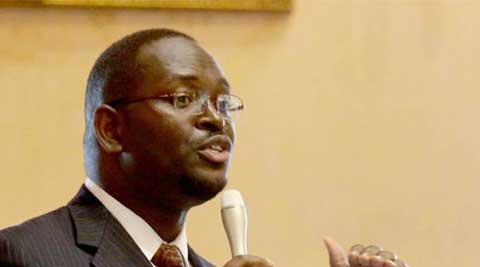Opinion Reverse Swing: The Charleston killings
Horror of racist massacre was compounded by the fact that the victims were killed while at prayer.

 Charleston, South Carolina — I happened to be in this southern American city on the day a young white man, armed with a handgun he’d received from his father as a 21st birthday present, killed nine black people in cold blood at an African-American church. The horror of the racist massacre was compounded by the fact that the victims were killed while at prayer. One of them was 87, so had spent the first half of her life segregated from whites. She’d used “Coloured” restrooms and water fountains, sat at the back of local buses, and suffered countless civic indignities.
Charleston, South Carolina — I happened to be in this southern American city on the day a young white man, armed with a handgun he’d received from his father as a 21st birthday present, killed nine black people in cold blood at an African-American church. The horror of the racist massacre was compounded by the fact that the victims were killed while at prayer. One of them was 87, so had spent the first half of her life segregated from whites. She’d used “Coloured” restrooms and water fountains, sat at the back of local buses, and suffered countless civic indignities.
The America in which she breathed her last was an America free from its old racial “apartheid”, but not free, evidently, from racism. And yet, in the aftermath of the killings, the only voices that could be heard were those of condemnation and sorrow. If there is one thing rational Americans can all agree upon, it’s that racism is unacceptable. They may define racism in different ways, and some may see it where others do not, but as a way of life and thought, racism is taboo in the United States.
Those who are racist — whether individuals or groups — are regarded as beyond the pale. How different this is from India, where it’s permissible, even in genteel quarters, to say things about Muslims that would, if uttered of blacks in the United States, be deemed the filthiest racism. “They breed like rabbits.” “They rape our women.” Residents of neighbourhoods band together to exclude Muslims. Buildings won’t permit Muslim tenants, and owners of even the grimiest Delhi barsati will turn away a prospective renter if he has a Muslim name.
Even large-scale killings of Muslims are spoken of by some in India — and not just on the looniest fringes of Hindutva — as cases where ‘They Had It Coming’. Can you imagine anyone even vaguely respectable saying that in the US after a black citizen had been killed in a racist attack? America is a country with a deeply sordid past, along with very many fine achievements. But it has transcended that past, and sought to learn from its mistakes, more thoroughly than any society in the world. In India, many millions still fail to understand why they should accord basic human dignity to their fellow citizens from castes they deem inferior.
So let us not rant about American failings and American racism. We should, instead, observe the way the country searches its soul after the Charleston killings — in painful, honest, open debate. This is still a country that is deeply religious and moral, for all its apparent tawdriness. I was moved to see Nikki Haley — née Nimrata Kaur Randhawa — Republican governor of South Carolina, say this, hours after the carnage at the church: “We woke up today, and the heart and soul of South Carolina was broken… We’re seeing love, we’re seeing prayers, we’re seeing humility.”
In the course of the press conference where she spoke those words, Haley choked up and had to fight back tears. When did you last see an Indian politician so publicly moved by tragedy, so honest about his emotions? Haley is, lest we forget, the non-white governor of a state with a profoundly racist past. Like much of the American South, South Carolina today has a more harmonious approach to race relations than the North, especially the North-East, whose residents are prone to stereotyping southern whites as saccharine-tongued folk with racist souls.
The American South is home to the truest “post-racial” America. The South had more racial baggage to unpack than anywhere else, and the experience has taught its citizens a richer lesson in the need for coexistence than any learned in New York, or Boston, or Chicago, where everyday life has a sharper edge. The response in Charleston to the killings in its midst has been exceptionally dignified and graceful. The city, by all accounts, is heavy with grief, but it has kept its poise and its spirit of civility. It hasn’t let its pride be tarnished by the evil acts of a racist young man.
Tunku Varadarajan is the Virginia Hobbs Carpenter Research Fellow at Stanford University’s Hoover Institution


